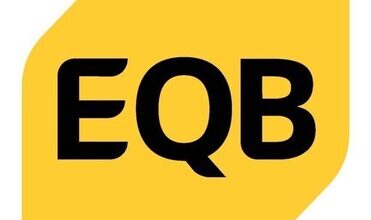31% of the Ark Fintech Innovation ETF Is Invested in Just 4 Stocks

The Ark Fintech Innovation ETF is up 87% since the start of 2023.
It’s been a tough few years for investors in the Ark Innovation ETF. Since its value peaked at $158 per share in early 2021, the exchange-traded fund (ETF) is down 73%. However, that is just one of the ETF offerings from Cathie Wood’s investment management firm. Another has delivered much better results: the ARK Fintech Innovation ETF (ARKF 0.45%).
Since the start of 2023, the Ark Innovation Fintech ETF jumped in value by 87%, outpacing Wood’s flagship ETF, which is up 36% over the same period. It also outpaced the Nasdaq Composite index (up 71%) and the S&P 500 (up 40%).
The ETF holds several fintech stocks, but there are four that represent the fund’s largest positions and together make up almost of third of the portfolio. They are:
1. Coinbase Global (11.6% of the ETF’s portfolio)
Coinbase Global (COIN 5.54%) operates one of the largest cryptocurrency exchanges in the world. It’s positioned to act as an easy on-ramp for people looking to buy or sell Bitcoin or any of the other 250 cryptocurrencies it lists.
The company is heavily involved in the cryptocurrency ecosystem, providing infrastructure for on-chain activities, including digital wallets, decentralized apps, and other engagement platforms.
Coinbase’s growth is strongly linked to trading activity in the cryptocurrency markets. In 2021, the market capitalization for cryptocurrencies surged as retail and institutional investors piled into the asset class, and the company recorded revenue of $7.8 billion. However, in each of the past two years, its revenue was less than half that amount.
Things have gotten off to a good start for Coinbase this year. Its first-quarter results were stellar as revenue grew by 187% year over year, driven by solid transaction volume, new user growth, and higher average trading volume per user.
The company will continue to focus on expanding revenue through transaction volume and its stablecoin and will work to gain further regulatory clarity, which should clear up uncertainty surrounding the industry.
2. Shopify (7.7% of the ETF’s portfolio)
Shopify (SHOP 1.64%) is a crucial player among retailers (especially those with e-commerce needs), offering a platform and an array of services that make it easy for businesses of any size to open and run shops (especially online shops). Its platform is simple to use and also provides numerous features, including product management, inventory tracking, and payment processing, making store management seamless.
The company’s top-line growth is stellar. Over the past five years, revenue went from $1.58 billion to $7 billion — a compound annual growth rate of 35%. Its bottom-line results, however, were more uneven. Earnings surged in 2021 as e-commerce activity skyrocketed during the pandemic. But in 2022, Shopify posted losses of nearly $3.5 billion. Last year, cost-cutting measures helped it get back in the black with a net profit of $132 million.
Shopify is well-positioned in an ever-expanding industry. According to a forecast from Boston Consulting Group, e-commerce sales will grow at a compound annual rate of 9% through 2027, when they are projected to comprise 41% of global retail sales, up from 18% in 2017.
3. Block (7.2% of the ETF’s portfolio)
Block‘s (SQ -0.08%) earliest product, the Square point-of-sales system, made it simple for small and medium-sized businesses to process digital and card payments and manage sales. Its system replaced bulky hardware, and empowered small businesses to accept payments easily using smartphones and tablets.
Its Cash App simplified peer-to-peer payments, making sending and receiving money easy. Since then, that app has grown into a full-fledged financial services platform, allowing people to bank, invest, and hold cryptocurrencies in a single place. The Cash App also holds the advantage of being the most used investing app across all generations, according to The Motley Fool’s Generational Investing Tools survey.
Block is in the midst of a transformational year. CEO Jack Dorsey is looking to streamline the business and improve the synergies of the company’s offerings: Square, Cash App, and Afterpay, its “buy now, pay later” (BNPL) service. The company also plans to invest heavily in Bitcoin, linking its longer-term success to the future of the cryptocurrency.
4. Robinhood Markets (4.9% of the ETF’s portfolio)
Robinhood Markets (HOOD -2.35%) aims to democratize investing for all, but in its efforts to do so, it generated its share of criticism for how it did so (including concerns about the gamification of stock trading). However, there’s no denying it has been one of the most innovative companies in the brokerage space over the past decade. The company popularized features like commission-free trading, fractional share trading, and a user-friendly interface.
Robinhood’s early growth was impressive, but it has slowed down in the years following the meme-stock-fueled trading frenzy of 2021. The company is taking steps to reignite growth, including offering high yields on uninvested cash to its Robinhood Gold members, and retirement accounts with matching to bring more funds onto the platform.
In 2024, the company posted its best quarterly results since going public. That improvement came from a growing asset base, robust transaction volumes, higher net interest income, and growing subscription revenue. Robinhood will continue to lean into its subscription business and retirement accounts to attract more funds to its platform, and, like Coinbase, seeks more clarity on its cryptocurrency business from regulators.



